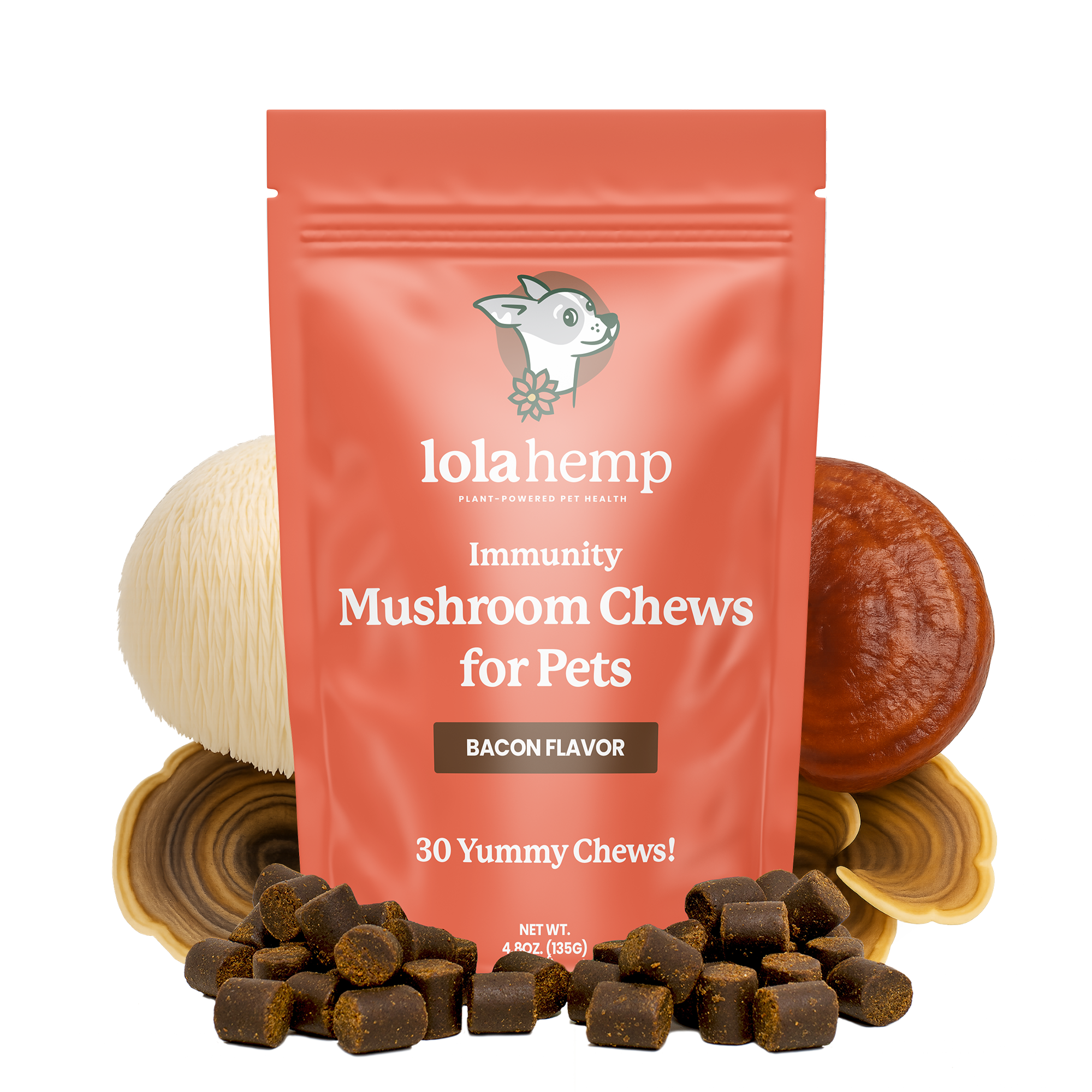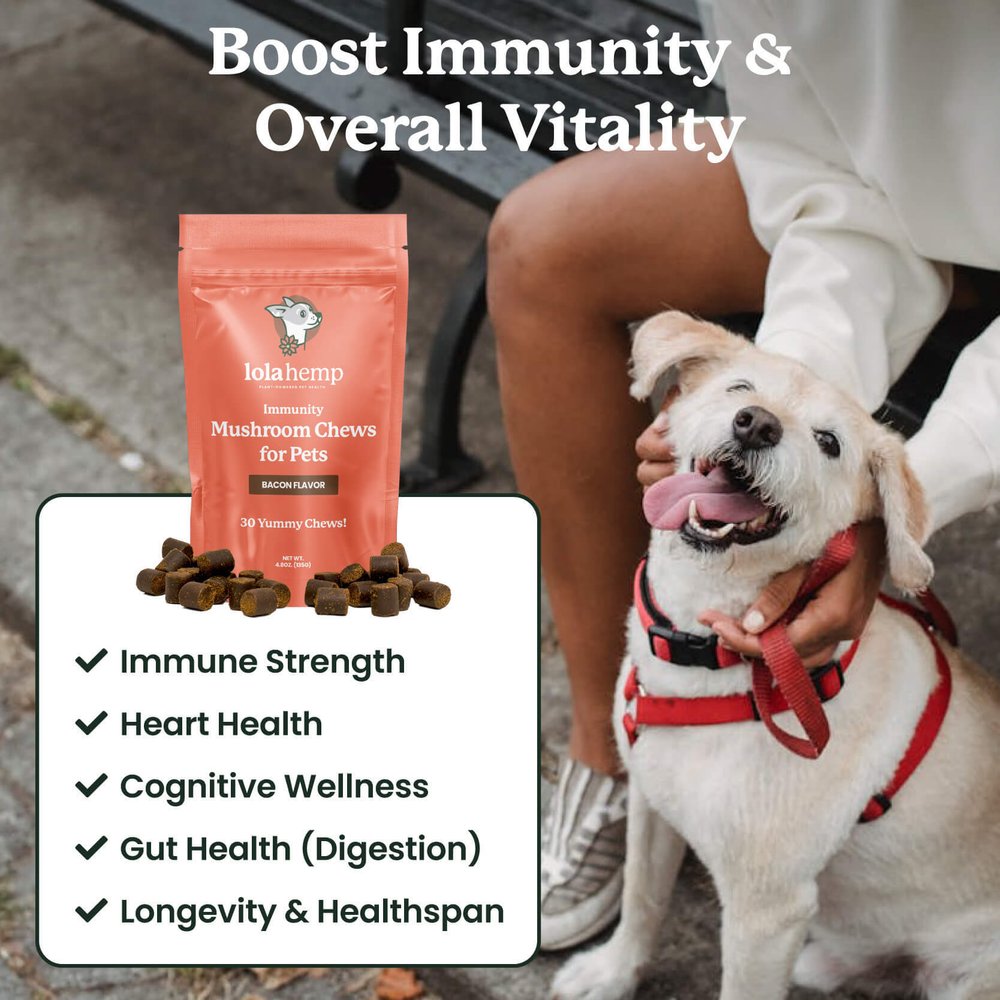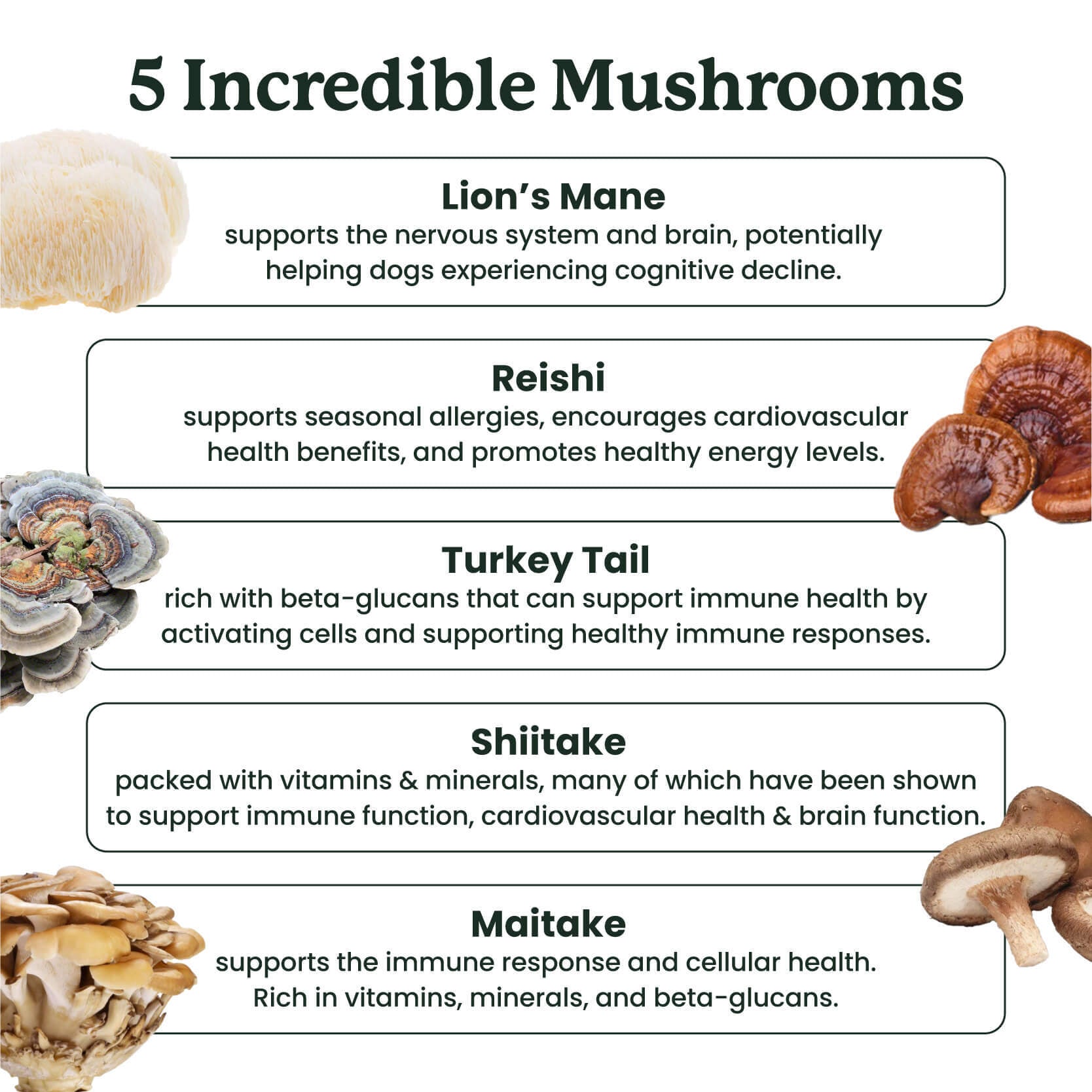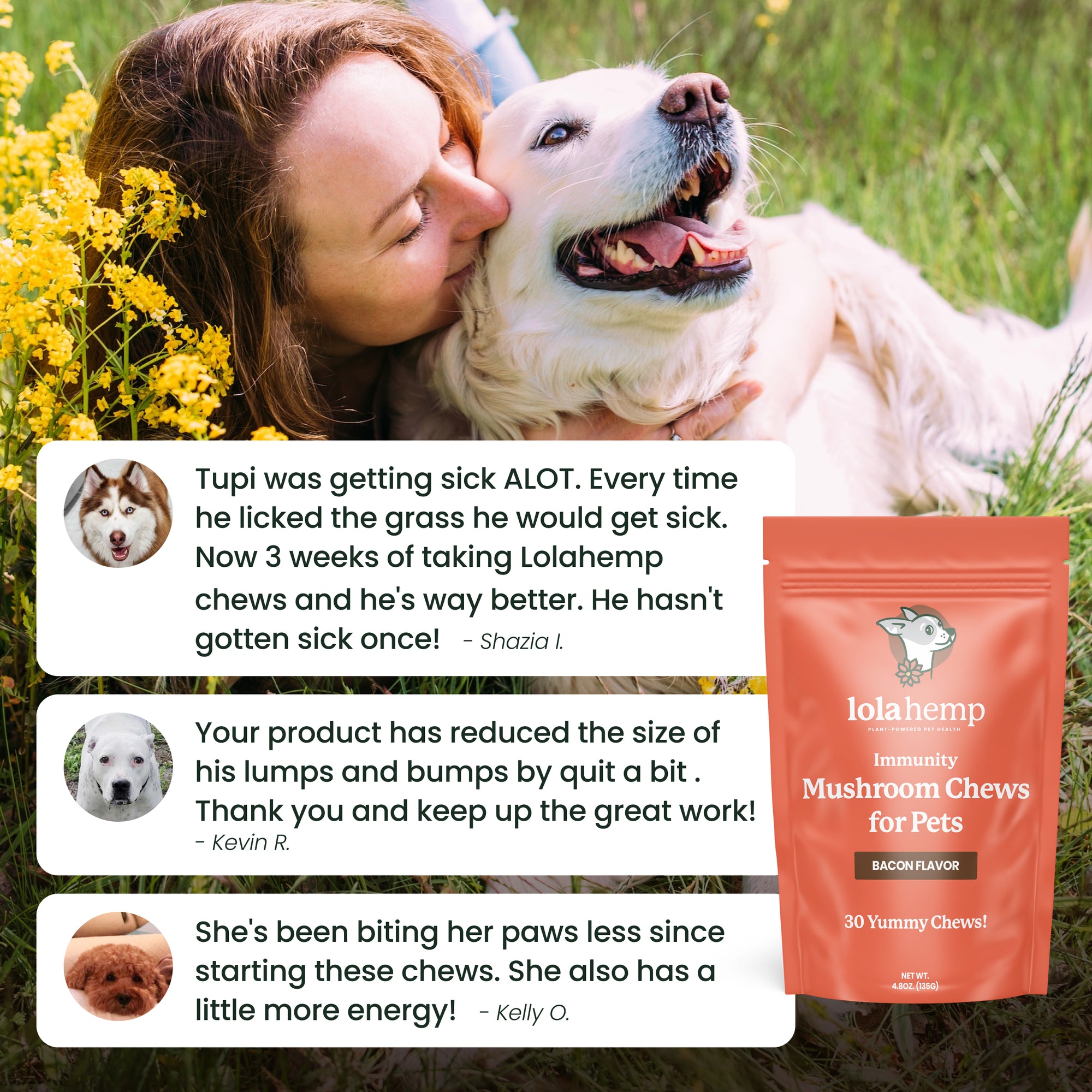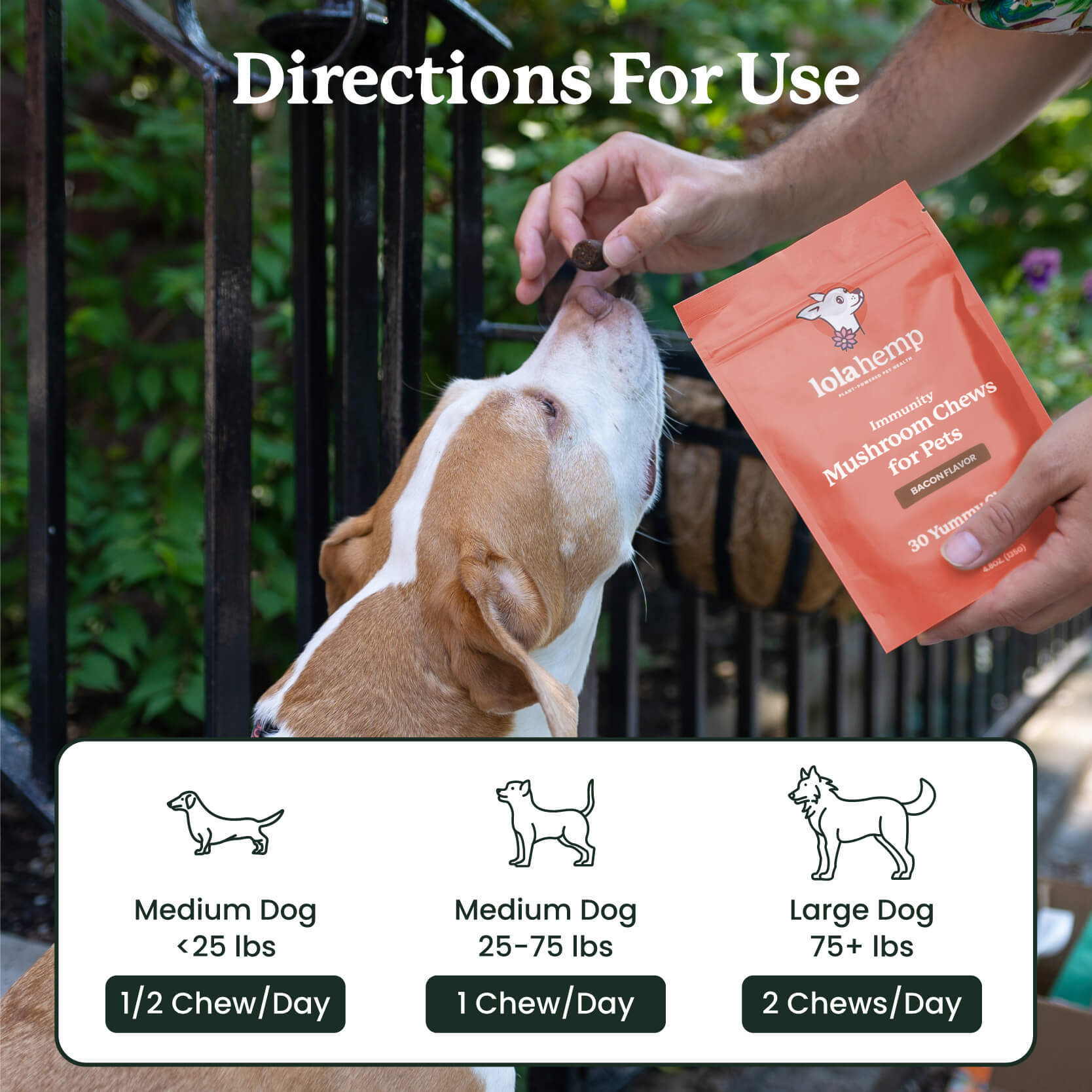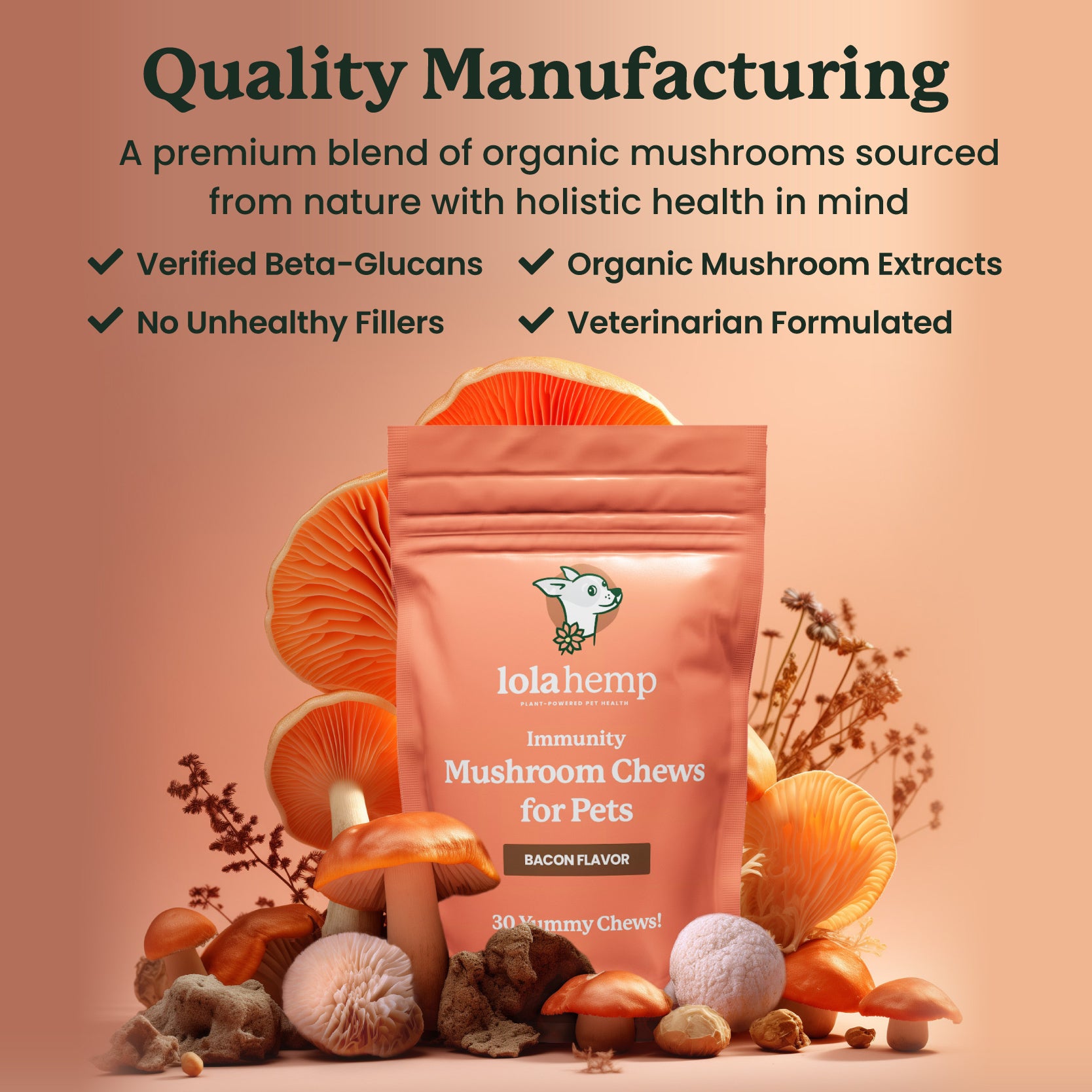Loose stool, digestive issues, and allergy issues are among the most common reasons for dog owners to consider probiotics. If one or more of these sound familiar to you, you're not alone. Countless dogs face these issues, and searches for "dog probiotics" have skyrocketed up 91% over the last 5 years.
As humans become more aware and interested in gut health for themselves, that same awareness is extending to dogs. Unlike many other trends, human gut health is actually comparable to canine gut health—dogs have similarly complex gut biomes that may benefit from supplementation.
When should dogs try probiotic supplements, though, and why? This article goes over the key things you need to know in detail.
Let's explore what the science says, whether or not your dog might benefit from probiotics, and which products to consider.
Quick Overview: Dog Probiotics 101
We'll cover everything in detail below, but here's a useful summary for those who just want the key points and quick answers.
What is the dog's gut, specifically? A dog's gut includes the stomach, small intestine, large intestine, gut lining, and microbiome (trillions of bacteria, fungi, and microorganisms). Roughly 70% of a dog's immune cells are in the digestive tract, making gut health vital for overall wellness.
What are dog probiotics? Dog probiotics are live strains of healthy bacteria that have shown to positively influence gut health. They temporarily support immune function, digestion, and balance in the microbiome, which requires consistent, daily use.
Which dogs should take probiotics? Healthy dogs may not need them, but those with diarrhea, allergies, sensitive stomachs, chronic stress, or recent antibiotic use often benefit most.
What is Your Dog's Gut Health, and Why is It Important?
Gut health refers to the function of your dog's entire digestive system. A balanced gut digests food efficiently, absorbs nutrients, and helps prevent harmful bacteria from overgrowing. Since 70% of immune cells reside in the gut, balance here affects overall health.
Energy, sickness, inflammation, mood, and digestion all connect back to the gut microbiome. When it's unbalanced, issues arise—but probiotics can help restore stability with minimal risk.
How Probiotics Work in Dogs
Probiotics improve gut health through several mechanisms:
- Competitive exclusion: They crowd out harmful bacteria by occupying binding sites in the intestines.
- Short chain fatty acids & pH support: They lower gut pH and produce compounds that inhibit pathogens.
- Immune modulation: They train the immune system to respond appropriately, reducing inflammation.
- Barrier protection: They strengthen the intestinal lining and reduce “leaky gut.”
- Microbiome recovery: They restore balance after antibiotics, stress, or illness.
Best Practices for Using Probiotics
- Use probiotics formulated specifically for dogs.
- Some natural probiotic foods can be beneficial to dogs
- Give them daily for best results.
- Pair with a balanced, fiber-rich diet.
- Be consistent—results take 3–6 weeks.
- Store properly in a cool, dry place or refrigerator.
Conclusion
Probiotics aren’t magic, but they’re one of the most researched, reliable ways to support your dog’s gut and immune health. Used daily with proper diet and storage, they can improve digestion, reduce inflammation, and promote long-term vitality and comfort.
Frequently Asked Questions about Dog Probiotics
When should dogs take probiotics?
Dogs with digestive upset, diarrhea, skin allergies, sensitive stomachs, chronic stress, or those that recently took antibiotics often benefit from probiotics. Healthy dogs with balanced gut flora may not need them regularly.
What are probiotics for dogs?
Dog probiotics are live strains of beneficial bacteria that support a healthy gut microbiome. They help balance good and bad bacteria, aid digestion, support immune health, and reduce inflammation in the digestive tract.
How do probiotics work in dogs?
Probiotics restore gut balance by crowding out harmful bacteria, lowering gut pH, producing short-chain fatty acids, supporting the intestinal barrier, and helping immune cells regulate their response. Together, these effects improve digestion and resilience.
How should probiotics be given to dogs?
Use probiotics made specifically for dogs and administer them daily. Consistency is key, as benefits fade if use stops. Pair probiotics with a balanced, fiber-rich diet and store the product properly in a cool, dry place or refrigerator to maintain potency.
What results can dog owners expect from probiotics?
With regular use, many dogs show better stool quality, reduced gas, and improved digestion within a few weeks. Long-term use may reduce inflammation, strengthen immunity, and support comfort and vitality throughout a dog's life.

